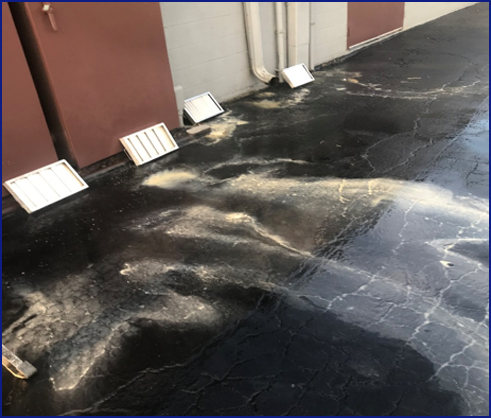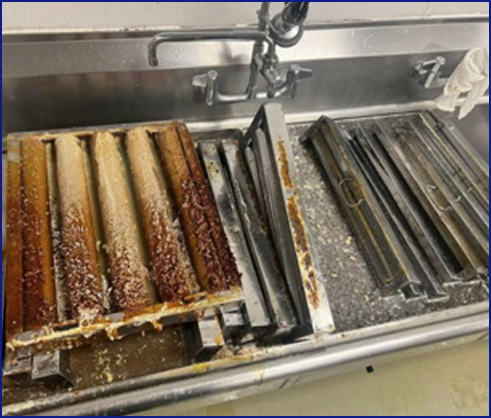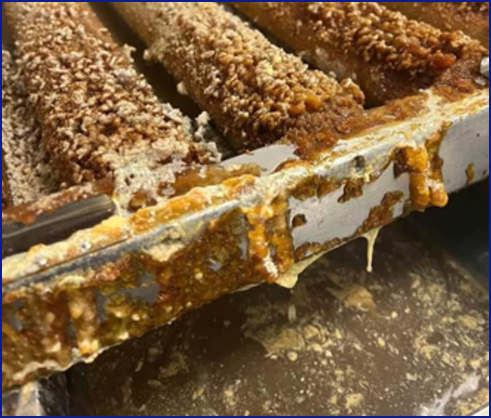- 323 Beverly Ln Jacksonville, FL 32254
- Give Us a Call
850-903-3664
- Send Us Emailmdoerksen@filtershineusa.com
Commercial kitchens are not properly equipped to clean grease filters on-site. While they may not know it, on-site cleaning only takes care of the grease on the outside surface of the filters (due to their honeycomb shape).
Besides not getting the filters properly cleaned, commercial kitchens who choose to clean grease filters on-site are in violation of health code and EPA regulations.
Kitchen exhaust grease filters are designed with an open-sided offset honeycomb shape. Therefore, it is almost impossible to thoroughly clean the inside of the filters with on-site cleaning methods.
Common (but unacceptable) ways commercial kitchens attempt to clean their own filters:
Parking lot cleaning of grease filters carries with it a host of problems. Because of their honey-comb design, the filters are only cleaned on the outside. Grease-laden water runs off the filters and runs into the stormwater drainage system. The grease-laden water can end up running into the ocean after entering local waterways.
THIS IS A SERIOUS EPA VIOLATION.
Both the restaurant and the company cleaning the filers can be held liable and fined.

Published health codes clearly state that food service establishments can only use three-compartment sinks for cleaning and sanitizing service ware. If the three-compartment sinks are used to clean grease filters, they must be filled with caustic (high pH) cleaning solutions to soak the filters. This is in direct violation of health codes.
Sink soaking filters allows grease-laden water to drain into the grease traps.
However, because of the high pH level of the water, the water can bypass the grease trap and contribute to sanitary sewer overflows. This can allow caustic, grease-laden water to end up in the public sewer systems.

Dishwasher cleaning of grease filters:
When commercial kitchens clean filters in the dishwasher, they must first soak them in a sink (which in and of itself is a violated of health code). Once the filters are dishwasher-cleaned, workers must empty the dishwasher tank of greasy water then refill it with fresh.
Because of the way dishwashers are plumbed, the grease-laden water bypasses the grease trap and drains into the public sewer system.
